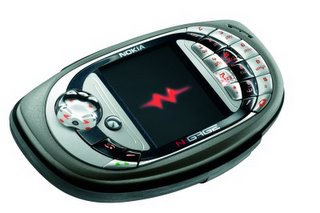 It looks like crap. But at least it’s free.
It looks like crap. But at least it’s free.After 6 years of planning,
Asiatotal - a Hong Kong-based organization - has finally launched the
iT project. The purpose of this project is to provide low-end personal computers, free of charge, to small businesses or low-income families.
The computer comes with:
- Keyboard
- Mouse
- 7-inch LCD monitor with speaker
- Smart card reader
- Microsoft Windows CE as its OS
As you can see, the iT is not your typical computer. It is made with the computer-illiterates in mind. It does not allow the users to install softwares without certification, thus reducing its risk of virus infection. But surprisingly, the iT can do quite a bunch of stuffs:
- Surf the internet with Microsoft Internet Explorer
- Connect remotely with Remote Desktop Protocol
- Setup dial-up networking
- Normal word processing with WordPad
- Viewer for viewing documents such as Word, Excel, PowerPoint, PDF, and photos
- Plays MIDI, WAVE, AIFF, WMA, AU, SND, MPEG-1, WMV, and MP3
And what makes the iT free, are the 14 dedicated keys on the keyboard. Each key, when pressed, will bring the user to individual sponsors’ website.
Last month, Asiatotal announced plans to ship 200,000 iTs to Brazil over the coming months. And at this moment, Asiatotal is still seeking sponsors to fund distributions in India, China, and Russia.
Source: http://www.hiptechblog.com/category/computer-technology/
Looks like a lot of people are trying to make the world a more connected place to live in. A sponsered PC - i like the sound of it. And why the hell should Brazil get the first 200000? there are poorer countries in Africa who'd do better with one PC per community than one in every home. And who the hell is providing internet connectivity? Telecom companies? Come over to villages in India and see how well its working. Take this example; a telecom giant in India decided to put up electronic billboards in all villages that would display SMS messages useful to the farming community - u know, like weather forecasts, current market prices, etc. . And guess what, the system worked well for a month probably and then went fizz... Reason: POWER. Where in the world does a village in a developing country have steady power? Alternative: Solar power - but who the hell will maintain it? I guess they need to work on in a little longer...


